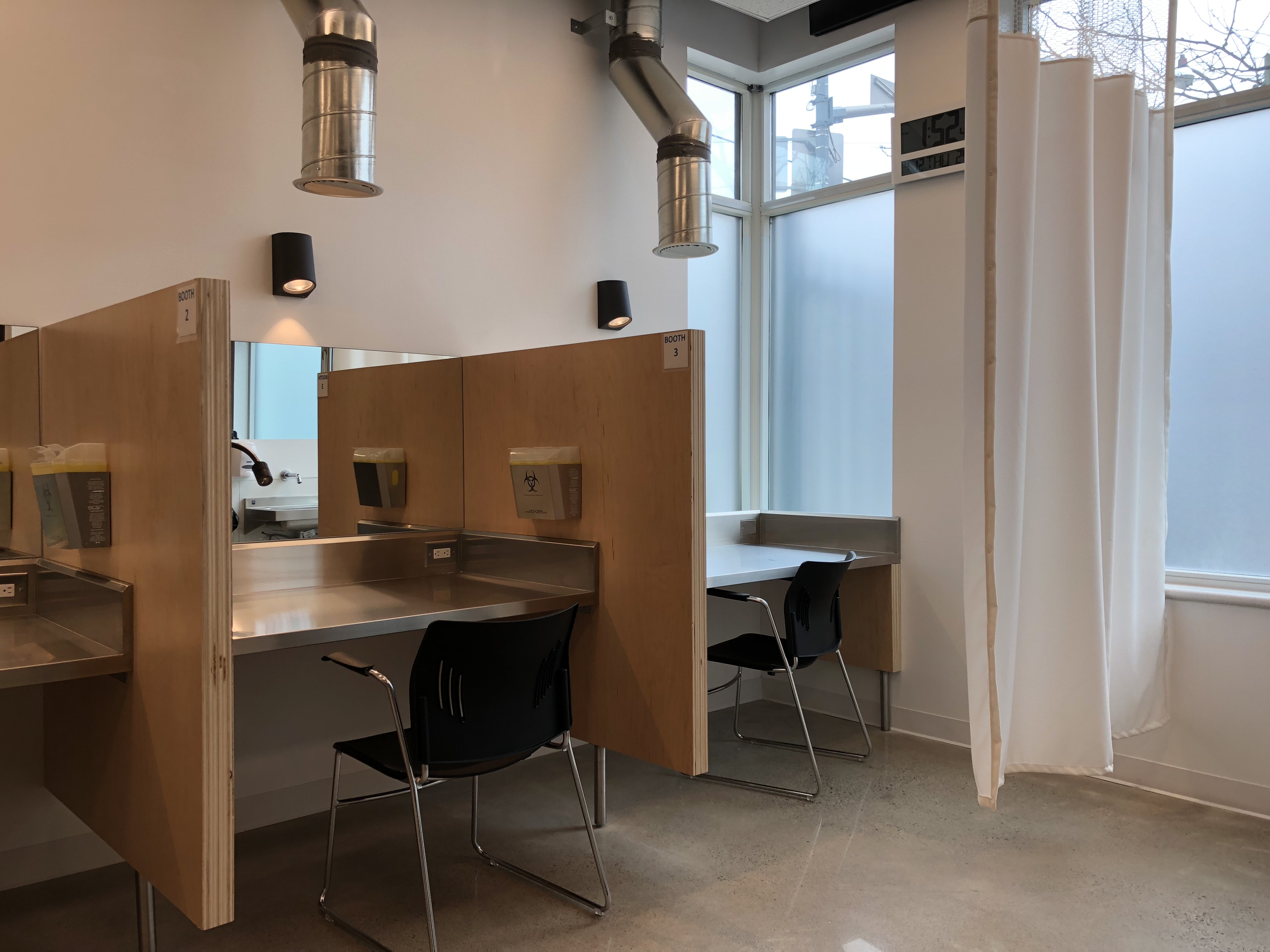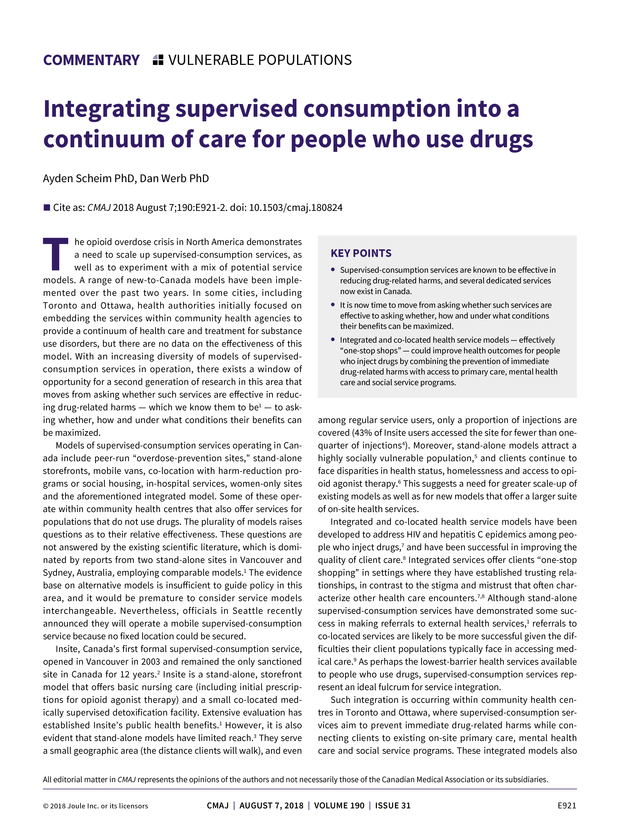Posted: August 7 2018
Author: CDPE
New Commentary: Research on Supervised Consumption Services Should Progress to Evaluating Diverse Service Models; Continued Operation in Ontario is Critical
Toronto, Canada – A commentary published today in CMAJ calls for future research on supervised consumption services to focus on evaluating different service models rather than the already answered question of whether supervised consumption is effective in reducing drug-related harms. Given that the Government of Ontario recently announced that they are reviewing the evidence on supervised consumption services to determine their merit, the authors’ assessment of the current state and future directions of the research on these services is especially relevant.
The new commentary highlights that although the scientific evidence on supervised consumption services is unequivocal, research on the diversity of models now in operation across Canada is underdeveloped. The next generation of research should therefore prioritize examining the plurality of models that have been implemented in order to determine which work best for different populations and settings. Undertaking research to understand when, why, and for whom various models are most beneficial will require the continued operation of diverse models, including in Ontario where the provincial government is considering their potential closure.
“It’s no secret that the scientific evidence collected to date on supervised consumption services is overwhelming,” said Dr. Dan Werb, Executive Director at the Centre on Drug Policy Evaluation and author of the commentary. “While the merit of such services in reducing drug-related harms has been established, future research is now focusing on their capacity to improve access to treatment. Rather than considering the removal of supervised consumption services, the Ontario government should therefore take heed of this opportunity to facilitate improved treatment uptake and retention, which has been stated as a key interest of this government.”
A wide range of models for supervised consumption services beyond standalone sites have emerged in Canada, including integrated services within community health agencies, peer-run overdose prevention sites, mobile vans, co-location with harm-reduction programs or social housing, in-hospital services, and women-only sites. Different models should not be treated as interchangeable, but their continued operation should be evaluated in order to assess their appropriateness for people who use drugs in different settings, such as in urban, suburban, rural and remote communities, as well as their suitability for specific subpopulations, including women and Indigenous people.
“Against the backdrop of an opioid overdose crisis that shows no signs of slowing down, supervised consumption services must remain part of our first line of defense,” stressed Dr. Ayden Scheim, Research Manager at the Centre on Drug Policy Evaluation and author of the commentary. “Evolving beyond asking whether such services are effective – which we know them to be – to asking how their benefits can be maximized through the use of different models is the next step and can only be accomplished if such services are permitted to continue.”
The Government of Ontario will decide on the fate of supervised consumptions services throughout the province in the coming weeks. This decision will have ramifications for the evidence base on diverse supervised consumption service models, and more imminently, on the lives of the many Ontarians affected by the opioid overdose crisis.
About the Centre on Drug Policy Evaluation
The CDPE strives to improve community health and safety by conducting research and outreach on best practices in drug policy. We work collaboratively with governments, affected communities, and civil society to guide effective and evidence-based policy responses to substance use. The CDPE was founded as the International Centre for Science in Drug Policy (ICSDP) in 2010 at the BC Centre for Excellence in HIV/AIDS in Vancouver, Canada. The CDPE is now housed within the Li Ka Shing Knowledge Institute at St. Michael’s Hospital, a site of Unity Health Toronto, in Toronto, Canada.
For more information or to arrange a media interview, please contact:
Nazlee Maghsoudi
Knowledge Translation Manager, CDPE
+1 (647) 702-7825
nazlee@cdpe.org

